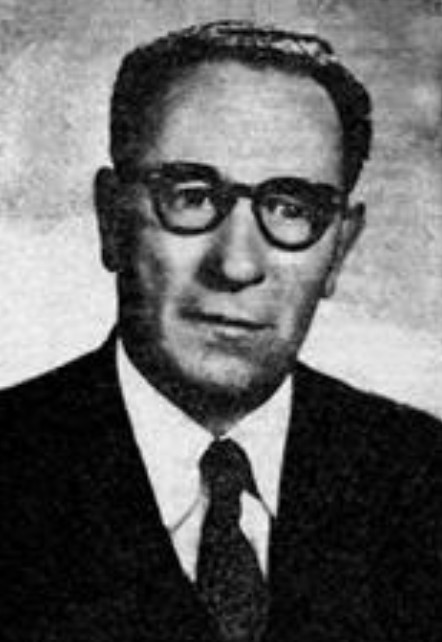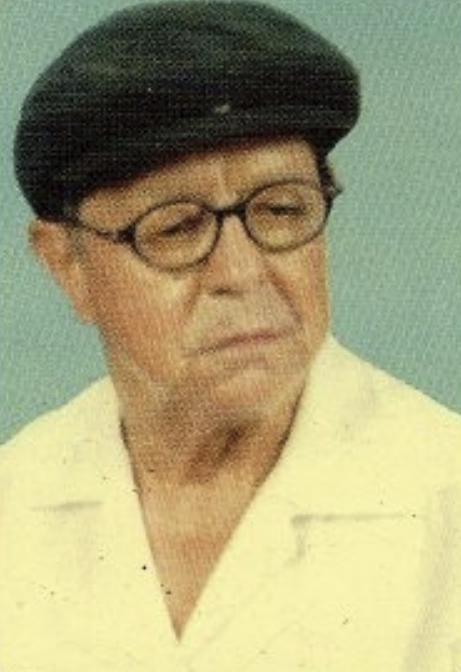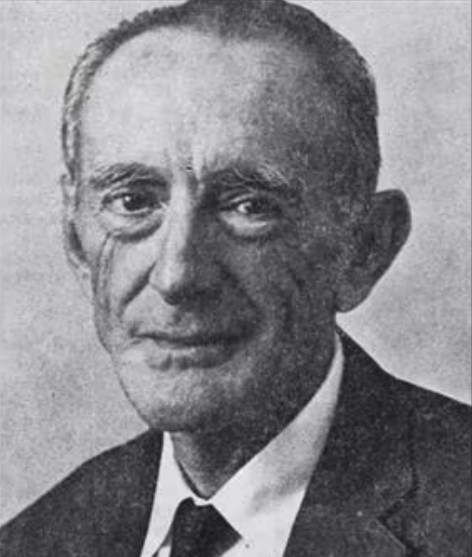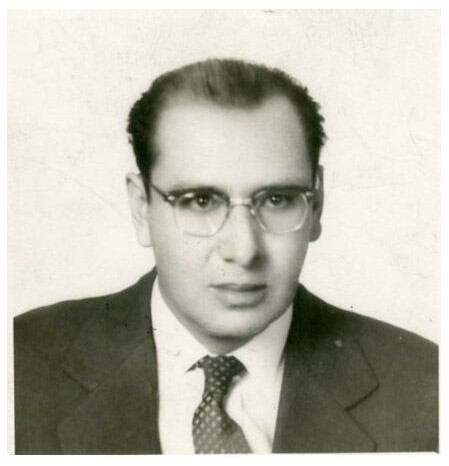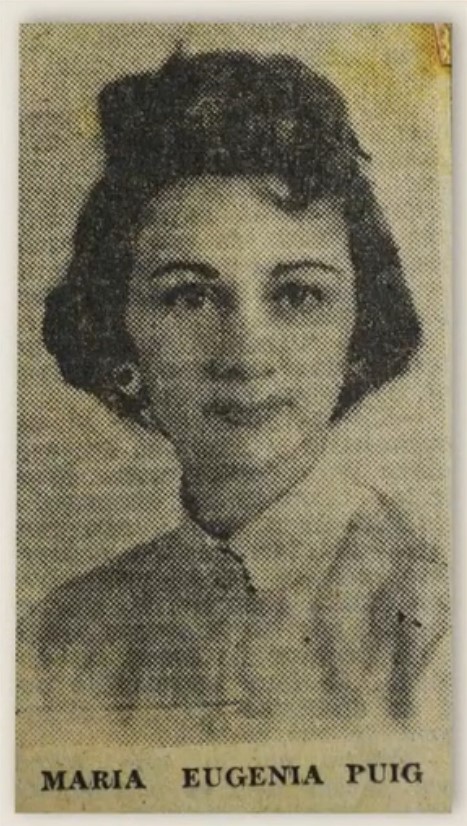Luis Aníbal Sánchez (Quito, February 3, 1902 – Quito, February 14, 1922) was an Ecuadorian writer and modernist poet celebrated for his pioneering use of prose poetry. From an early age, Sánchez immersed himself in Ecuador’s literary circles, joining forces with Jorge Carrera Andrade and César Ariosto Orellana to co-found the César Borja Literary Society at Colegio Mejía in Quito. This student group, composed of high school peers, was devoted to literary innovation and expression, becoming a hub for young, revolutionary voices. Sánchez’s most notable work, Palabras con Flordelina (1920), epitomized his intense and emotive prose poetry, complemented by an epilogue penned by Gonzalo Escudero Moscoso. His contributions extended to Ecuadorian literary magazines such as La Idea, Crepúsculo, and Los Hermes, and he also wrote the introduction to Escudero’s Los poemas del arte. Despite his untimely death at just 20 years old, Sánchez’s literary legacy endures, marking him as a key figure in the evolution of Ecuadorian modernist literature.
Continue reading “Luis Aníbal Sánchez”Category: 20th Century Writers
Miguel Ángel Zambrano
Miguel Ángel Zambrano (Riobamba, 1898 – Quito, 1969) was an Ecuadorian poet, university professor, and social reformer whose work bridged literary and political spheres. Known for his late start in publishing, Zambrano released his first poetry collection, Diálogo de los seres profundos, at age 58, earning acclaim for its philosophical depth and apocalyptic tone. His poetry, which includes Biografía inconclusa (1961) and Mensaje (1968), explores themes of existentialism and social justice, resonating with Ecuador’s indigenous and working-class struggles. As a professor at the Central University of Ecuador, he also founded the Institute of Social Research and co-authored Ecuador’s 1938 Labor Code. His legacy endures through posthumous collections and preserved recordings, cementing his status as a key figure in Ecuadorian literature and social thought.
Continue reading “Miguel Ángel Zambrano”Jorge Centeno Medranda
Jorge Centeno Medranda is a foundational figure in Manta’s literary and cultural history, celebrated for his work as a poet and cultural advocate, especially throughout the 1970s. As a founding member of the Grupo Cultural Manta, established in 1965, Centeno Medranda was instrumental in shaping the city’s poetic identity, participating in public readings and literary events alongside other prominent poets, such as Josefa Mendoza de Mora and Angélica Flores Zambrano. Known for his dedication to poetry as an autonomous art form with a focus on language and intellectual depth, he contributed significantly to Manta’s vibrant cultural scene. His influence also extended to educational initiatives, notably through his role in the founding of Unidad Educativa Cinco de Junio, reflecting his commitment to both literary and community development in Manta.
Continue reading “Jorge Centeno Medranda”Max Puertas Alarcón
Max Puertas Alarcón (Loja, Ecuador, December 17, 1935 – Machala, Ecuador, July 22, 2016) was an Ecuadorian lawyer, judge, writer, and cultural figure. Known for his integrity in the legal field, he held various roles, including judge, where he was celebrated for his ethical standards. He was also an active contributor to Ecuadorian literature, authoring works such as Historia del pequeño Miguel Ángel (2002), an autobiographical work depicting early 20th-century life in Loja and Portovelo.
Continue reading “Max Puertas Alarcón”Jenny Romero Pape
Jenny Romero Pape (1930 – Unknown) was an Ecuadorian poet and cultural figure. Best known for her poetry collection La rosa de cristal (1958), she explored themes of love, solitude, faith, and patriotism. In 1968, she also published Por un mundo mejor, a work linked to Ecuadorian essays and Catholicism. Romero Pape was also active in the cultural scene of Guayaquil as a member of the Agrupación “Cultura y Fraternidad” (Culture and Fraternity Association). She wrote the lyrics for the anthem of the “Nueve de Octubre” National High School, created during a competition, with music composed by Divina Icaza Coronel.
Continue reading “Jenny Romero Pape”Patricia Velásquez de Mera
Patricia Velásquez de Mera, formerly Patricia Velásquez Villacís (Guayaquil, Ecuador, 1951), is an Ecuadorian-American poet, novelist, and visual artist. She began her literary career with the novel El Porvenir de Aniata (1996) and later published poetry collections such as Entre dos ríos (2001) and Mapa de amor y de dolor (2007) under her married name, Patricia Velásquez de Mera. In addition to her literary accomplishments, she embarked on a painting journey at age 45, adding a new dimension to her artistic expression. Often using the pseudonym “Dagor” for her online poetry and art, Velásquez de Mera’s work explores themes of love, existence, and human emotion, seamlessly blending her literary and visual artistry into a unified creative vision.
Continue reading “Patricia Velásquez de Mera”Efraín Pérez Castro
Efraín Leonidas Pérez Castro (Guayaquil, November 16, 1912 – May 2, 2001) was an Ecuadorian writer, journalist, and columnist. As the son of Ismael Pérez Pazmiño, founder of El Universo, he played a key role in the newspaper’s development alongside his brothers. Pérez Castro was known for his insightful editorial columns and his contributions to Ecuadorian literature, publishing works such as Prosa y verso (1960). He was also an active member of cultural organizations like the Círculo de Periodistas del Guayas and Casa de la Cultura Ecuatoriana. In 1992, he was awarded the National Order of Merit for his contributions to Ecuador’s cultural landscape.
Continue reading “Efraín Pérez Castro”Lucía Gómez de Bracho Urdaneta
Lucía Gómez de Bracho Urdaneta (1940 – Unknown) was a diplomat, writer, and poet. She held a doctorate in diplomacy and was renowned for her expertise in maritime law, particularly through her book Biografía del Mar (1977), which earned the First Latin American Prize in Maritime Law. She also authored the historical work Tratado de Guayaquil frente a la historia and published poetry, including the collection Transparencia. Gómez de Bracho Urdaneta served as Subdirector of the Regional Office of the Ministry of Foreign Affairs and wrote the lyrics for the hymn of the Asociación Ecuatoriana de Radiodifusión (AER).
Continue reading “Lucía Gómez de Bracho Urdaneta”Hugo Vásquez Almazán
Hugo Vásquez Almazán (Guayaquil, April 29, 1936 – Guayaquil, May 6, 2008) was an Ecuadorian priest, theologian, poet, and author of over 90 works. He is best known for his significant contributions to the Schoenstatt Movement in Ecuador. As one of its founders, he played a crucial role in spreading the teachings of Father Joseph Kentenich, whom he met personally in 1965. Father Hugo was the first Latin American priest admitted to the Institute of Schoenstatt Diocesan Priests and authored several notable works, including Nuestra contribución al cielo and Pondo: Poemas. His legacy extends into both religious and literary fields, and he was posthumously featured in several anthologies. He also served as a professor at the Catholic University of Guayaquil.
Continue reading “Hugo Vásquez Almazán”José Ayala González
José Ayala González (Guayaquil, August 2, 1885 – June 20, 1974) was an Ecuadorian poet, farmer, and public servant. Known for his romantic and nostalgic poetry, he contributed to various publications and published a collection of his works titled La Noche Avanza. Raised in a cultured and prosperous family, Ayala González spent much of his life managing agricultural estates and held several public offices, including Chief Political Officer of Babahoyo and Vice President of the Consejo Provincial de Los Ríos. His work remained within the Romantic tradition, and while newer literary movements had emerged, his poetry continued to reflect deep emotions and connections to rural life, showing a strong attachment to the past.
Continue reading “José Ayala González”Gilberto Molina Correa
Gilberto Molina Correa (Cañar, September 20, 1915 – Unknown) was an Ecuadorian poet, novelist, playwright, short story writer, essayist, and educator. His diverse body of work spanned multiple genres, including notable contributions such as the novel Sismos y abismos (1969), the short story collection Almas conturbadas (1962), and the play Censo sin consenso (1962). He also authored the poetry collection La inefable presencia (1966). He was an influential advocate for educational reform and a school director, serving as head of Escuela Municipal “Joaquín Donoso” in Vinces. Molina Correa left a lasting mark on both Ecuadorian literature and education.
Continue reading “Gilberto Molina Correa”Néstor Campuzano Mendoza
Néstor Campuzano Mendoza (Guayaquil, February 7, 1926 – Unknown) was an Ecuadorian poet and intellectual best known for writing the lyrics to the anthem of Universidad Laica Vicente Rocafuerte. His literary career, marked by a deep sensitivity and mastery of sonnets, earned him notable recognition, including the ‘Estrella de Octubre’ award in 1956 for his Soneto a Cristo. His works, such as Horas Milagrosas, Trigal Azul, and Elegía del Ayer, reflect a melancholic and philosophical outlook on life. He is remembered as a revered figure in Ecuadorian literature for his contributions to poetry and cultural heritage.
Continue reading “Néstor Campuzano Mendoza”María Eugenia Puig
María Eugenia Puig Lince (Guayaquil, August 2, 1919 – Quito, February 4, 2001) was an Ecuadorian poet, intellectual, and diplomat. She co-founded the Grupo Cultural “Oasis” in 1955 alongside Rosa Borja de Ycaza and Zoila Luisa Campodónico de Caputti, and served as its director, documenting the group’s activities in the magazine “Oasis.” She was also a key figure in founding the Pan-American Women’s Round Table of Ecuador, advocating for women’s cultural involvement. Her legacy is honored through the Museo Municipal de Arte “María Eugenia Puig Lince,” inaugurated in Guayaquil in 2013.
Continue reading “María Eugenia Puig”María Leonor Madinyá Andrade
María Leonor Madinyá Andrade (Guayaquil, February 15, 1936 – Guayaquil, September 7, 2006) was an Ecuadorian poet known for her deeply introspective and melancholic poetry. Despite becoming blind at the age of 22, she mastered Braille and continued her literary pursuits, becoming an advocate for the blind. Her works, such as Palpitar de un sueño (1966) and Ventana del Alba (1968), are celebrated for their emotional depth and spiritual themes. Madinyá also hosted the long-running radio program Música y Poesía, promoting poetry in Ecuador for over two decades.
Continue reading “María Leonor Madinyá Andrade”Luis Cisneros Noriega
Luis Cisneros Noriega (Riobamba, 1908 – 1987) was an Ecuadorian poet, composer, and pianist. He published several poetry collections, including Cúpulas en la nieve (1960), Pinceladas (1975), Blancuras (1977), and Presencia (1983). As a composer, he created notable pieces such as the pasodoble “Quito“ and the popular song “Chola Cholita.” Cisneros Noriega also worked as a pianist at Radio El Prado in Riobamba during the 1930s, contributing to the promotion of Ecuadorian music and culture. A street in Pastaza and a school in Chimborazo are named in his honor.
Continue reading “Luis Cisneros Noriega”
